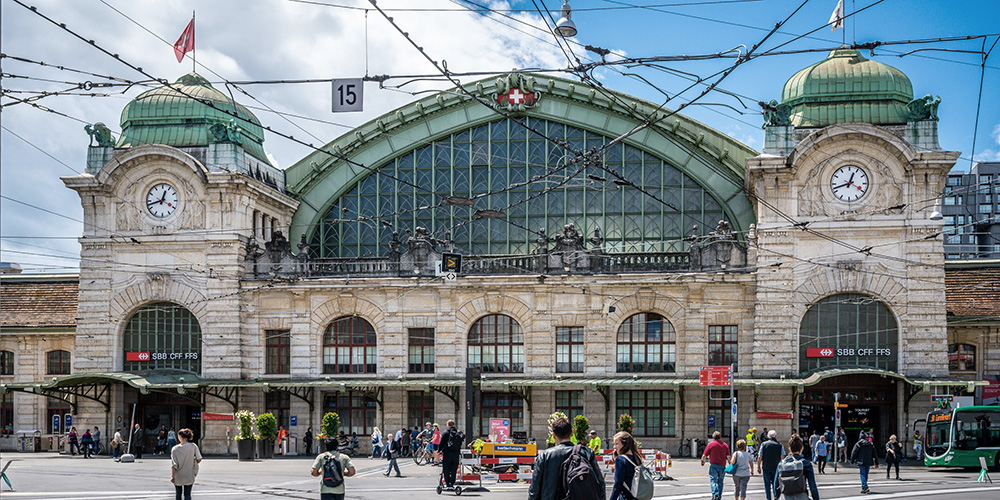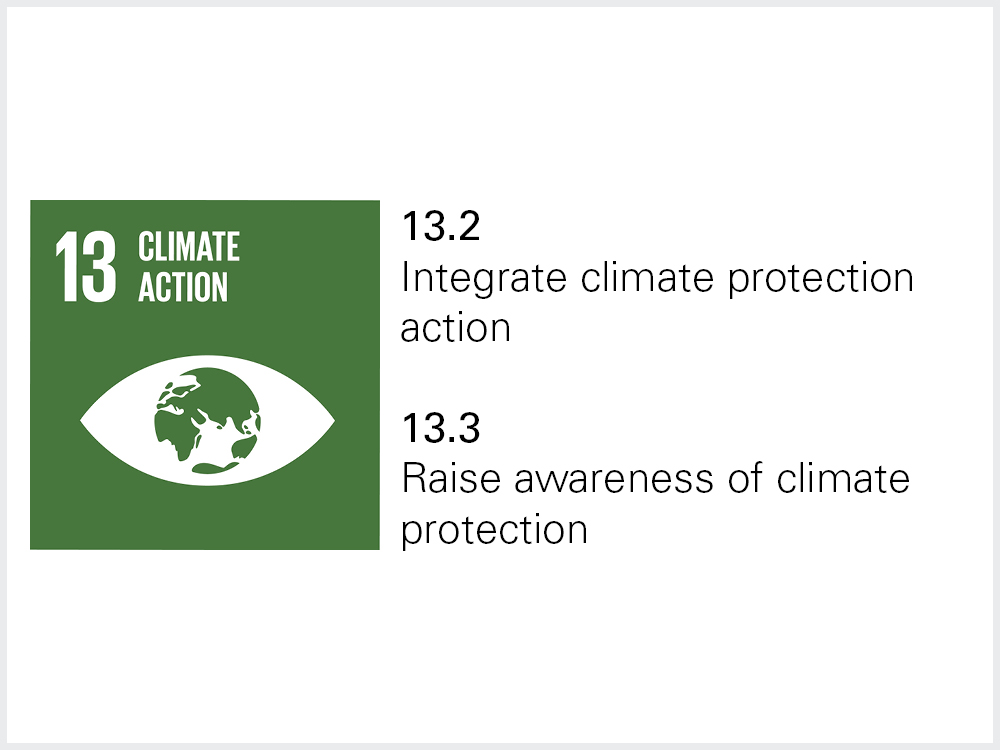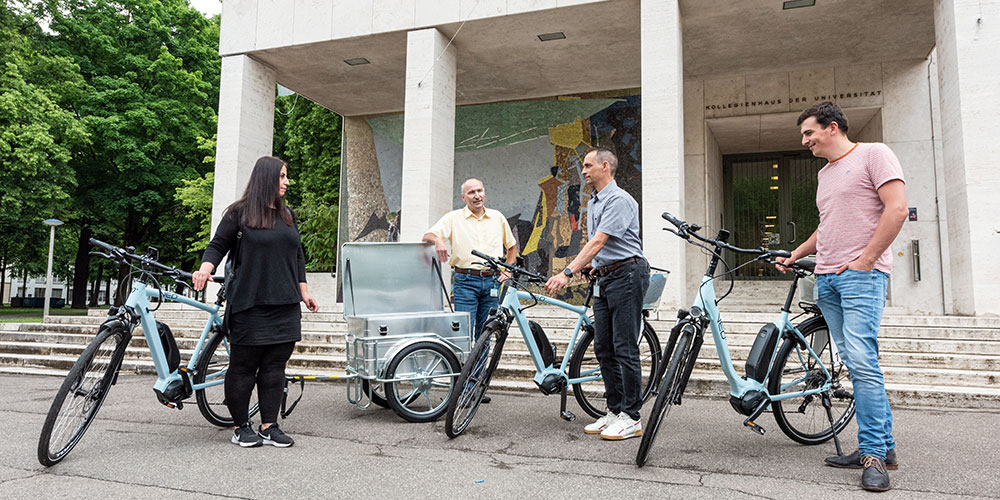Mobility

The University of Basel’s flight emissions were significantly lower in the past two years than before the COVID-19 pandemic. The first decentralized measures for reducing flight emissions in the faculties and departments were undertaken as part of the “less for more” project. Additionally, further lecture halls and meeting rooms were equipped with the necessary technology for hybrid teaching and virtual meetings, thus facilitating digital mobility.
“less for more” project off to a successful start
The “less for more” project has the goal of reducing emissions from air travel by 30% compared to the 2017–2019 average. In order to take into account the different cultures of subject areas in research and teaching, the Sustainability Office worked with each of the university units in 2021, to identify their own path to the targeted reduction. Many units decided, for example, that work trips that can be completed by train in less than eight hours should be made by train. Examples of other measures include smaller conference delegations, awareness-raising and the increased use of virtual meetings for appointments or examinations. Managers of faculties and departments were provided with access to an online dashboard for monitoring the annual emissions.
Significant reduction in air travel
Due to the COVID-19 pandemic, the number of flights was still very low (915 flights) in 2021, but rose again in 2022 to over 4,000 flights. There was a corresponding increase in emissions caused by air travel, from 401 t CO2-eq in 2021 to 1,875 t CO2-eq in 2022. This is roughly equivalent to the carbon emissions that would be created if all the residents of the city of Basel traveled by train to Paris and back1. Long-distance flights accounted for 37% of the flights, but, as in prior years, were responsible for 80% of total flight emissions. With a 45% reduction in emissions compared to the 2017–2019 baseline, the 30% reduction goal set by the President's Board was still achieved. However, due to the effects of pandemic restrictions, it is not yet possible to fully judge the effectiveness of the measures implemented.
Emissions from other activities related to business travel were calculated from 2019. This includes emissions from travel by car, train and bus as well as meals and overnight stays. Nevertheless, flight emissions remain the most relevant ones.
Infrastructure for digital mobility
While business travel decreased considerably as a result of the COVID-19 pandemic, the importance of virtual means of communication increased. With the large-scale return of the possibility of in-person events for both staff and students in 2022, Zoom software use declined by about 70% compared to 2021. Spurred on by the challenges of the pandemic, technical equipment for hybrid teaching was installed in several rooms of the Kollegienhaus (main building). This included cameras, microphones and measures for improved acoustics. Multiple meeting rooms were equipped with mobile technology for virtual meetings, such as 360-degree webcams.
E-bikes for the Facilities department
Since 2021, three e-bikes have been available for the University of Basel Facilities department to use for short trips and transporting small loads. The e-bikes provide a quick and lower-cost alternative to trips via taxi or public transportation and are popular among the staff. For transporting loads that do not fit in the bicycle baskets, a bicycle trailer with attachable aluminum box is also available.
Goals & actions
Reduce flight-related greenhouse gas emissions by 30% compared with 2017–2019 baseline
Implement resolved steps of the “less for more” flight travel project, continue to monitor fight data, implement awareness-raising steps and support for decentralized units
Sustainability Office
Accounting Department
All Departments, Faculties and Institutes
Improve infrastructure and support for virtual meetings
Implement a preliminary project to assess the financial framework and organizational structure needed for improved equipment, maintenance and support of rooms for virtual meetings at the University of Basel
Educational Technologies
IT Services
Facilities
Improve infrastructure and support for virtual meetings
Set up several classrooms in the Kollegienhaus (main building) with the necessary technical equipment for virtual meetings
Facilities
Project management & Engineering
Improve data on mobility-related greenhouse gas emissions
Record business travel-related emissions broken down by means of transport (air, rail, car) from 2021
Accounting Department
Sustainability Office
[1] Calculations based on population data from the canton Stadt Basel (Kanton Basel-Stadt) and 10.8 kg CO2-eq pro retour trip (TGV-Lyria)




